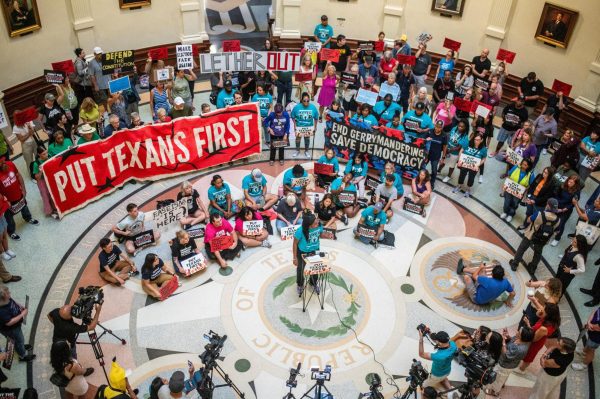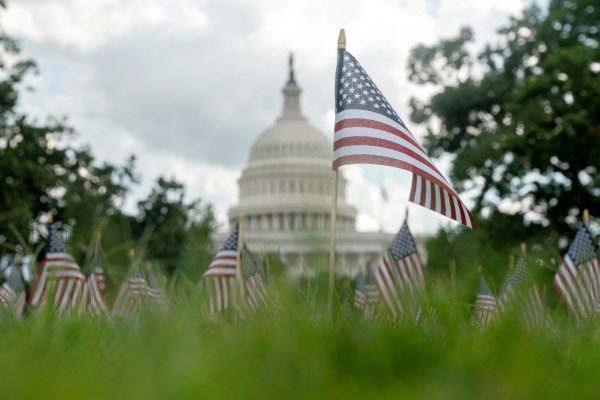Beijing Olympics 2022: Was it worth it?
Graphic designed by Nimrah Khan via Canva
The warmth and welcome of this year’s Olympic torch blinded viewers from China’s largest human rights catastrophe: the Uyghur genocide.
Millions of people worldwide tuned into the Olympic Games, ecstatic to watch their countries compete in the ancient tradition. This year’s Winter Olympics were held in Beijing, China, but while fans cheered on the skillful skiers and criticized the Russian doping scandal, the harrowing cries of millions of innocent Uyghur Muslims were deafened by the zealous roar of the Olympics.
Every four years, a different country hosts the games, and this year happened to be China’s turn. Lighting the ceremonial Olympic torch was the smiling Uyghur cross-country skier Dinigeer Yilamujiang, who at first appeared chosen to symbolize unity, warmth, and welcome. Yet in the midst of mass genocide and ethnic cleansing taking place in the same country, this was a slap in the face.
Beginning in 2017, the Chinese government established hundreds of concentration camps (officially titled “vocational education and training centers”) throughout the Xinjiang region. Their purpose was to enroll Uyghur Muslims into these high-security “training centers” to decrease decades of poverty, religious extremism, terrorism, and separatist violence, according to BBC News reporter John Sudworth who visited a camp three years ago.
However, it is clear that the intention was not to simply “re-educate” Uyghur Muslims away from terrorism and separatism.
Three million Uyghur Muslims and other ethnic minorities have been detained and about 1.5 million are being held in concentration camps, in which they are subjected to intense ethnic cleansing, rape, torture, sterilization, brainwashing, and other forms of physical and psychological abuse, according to the Smithsonian Magazine.
Religious practices are forbidden, including praying, wearing religious clothing, and even giving babies Islamic names. Muslims are forcefully fed pork, another way of shattering their faith. Inmates also face “enormous psychological pressure and severe punishment,” said Uyghur survivor Sayragul Sauytbay in an interview with the New Internationalist. “Everything was done to make them forget their roots, their identity.”
Families are torn apart, disappearing for years without contact with one another. In an interview with The Economic Times, Uyghur activist Rushan Abbas recalls the last time she saw her sister. “September this year marks two years of my sister, Dr. Gulshan Abbas’s abduction by the Chinese government. She was taken because of my activism here in America,” said Abbas.
To survive, Amnesty International advisor Jonathan Loeb said, “Muslims in Xinjiang have modified their behaviors in a way that did not allow them to engage in religious practice anymore.”
What is happening right now in China is the largest mass genocide of an ethnic minority group since the Holocaust, and the world is silent. “It is the largest mass internment of an ethnic-religious minority group since World War II” wrote reporter Jen Kirby in an article.
Now five years later, probably longer, China stands at the precipice of mass internment and was still able to host the 2022 Winter Olympics in Beijing. The event even opened up, with a cheerful Uyghur athlete to signify unity. The same country that is actively abusing the human rights of the Turkic Muslim minority places the very person they are targeting at the forefront of a global event to showcase to the world their warmth and hospitality.
Many countries, including the United States, were participating in a diplomatic boycott, which essentially meant that no government officials attended the Games. The reason for the boycott was “genocide and crimes against humanity,” according to White House secretary Jen Psaki in announcing the decision. However, athletes still competed in the Games.
As a Muslim, watching the Chinese government, and the whole world, really, sweep the genocide of fellow Muslims under a rug, plastering smiles on the affected demographic to appeal to the world as sympathetic is sickening. While countries acknowledged the Uyghur crisis in China through a diplomatic boycott, the impact was counterintuitive as it did nothing to raise awareness for the Uyghurs, condemn China, or mobilize any effort against genocide. Moreover, following the Russian invasion of Ukraine on February 24, the International Olympic Committee (IOC) excluded Russian athletes from international events following Russia’s invasion of Ukraine.
And yet, China was allowed to host the event? The irony is absurd.
So, with the closing of the Beijing 2022 Olympics and its happiness in the face of an immense human rights catastrophe, there arises a new question: Was watching the games really worth it?

Nimrah Khan is a senior at RCHS, and this is her third year in journalism. She is the editor-in-chief of the school newspaper, The Cat’s Eye. Her favorite...






